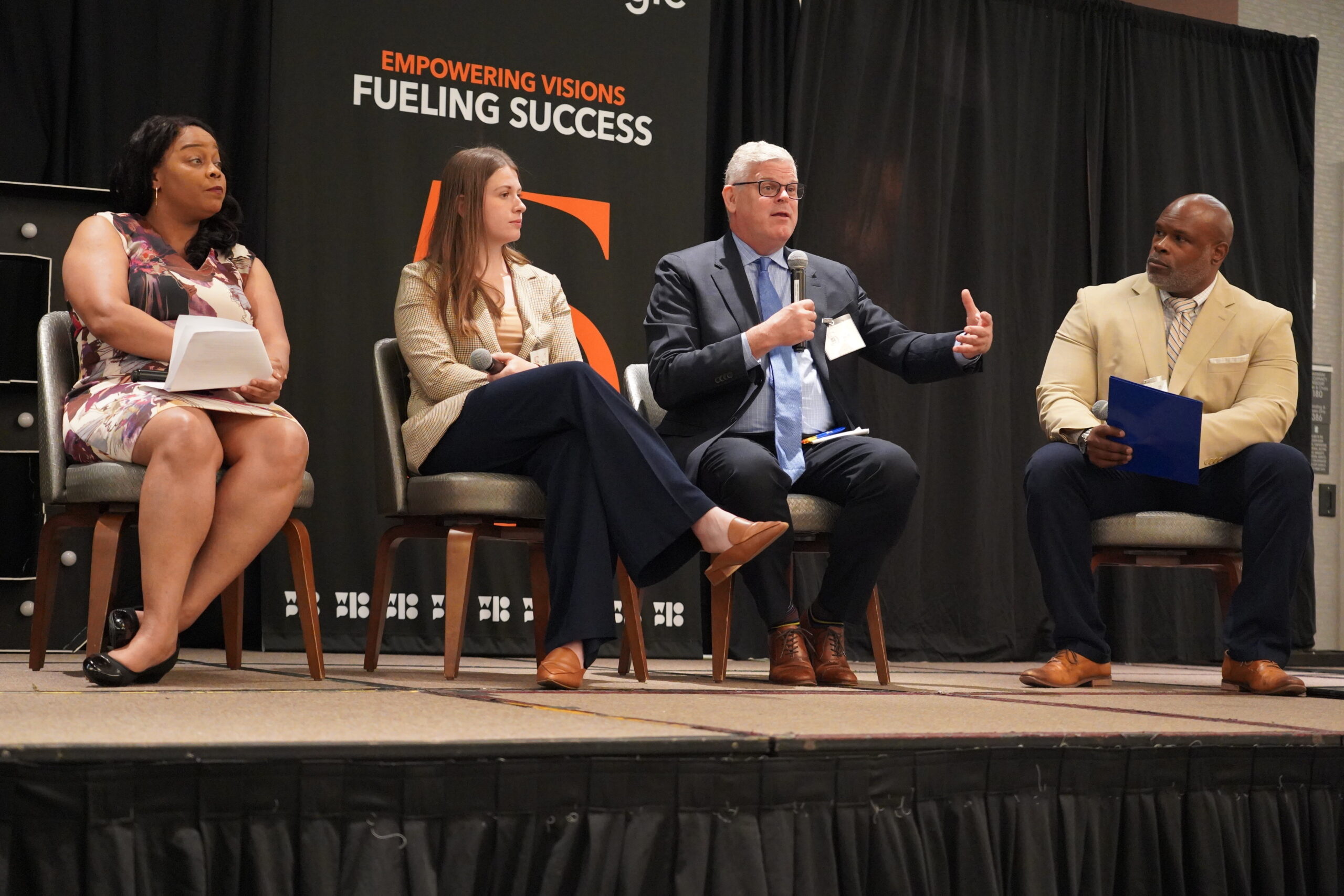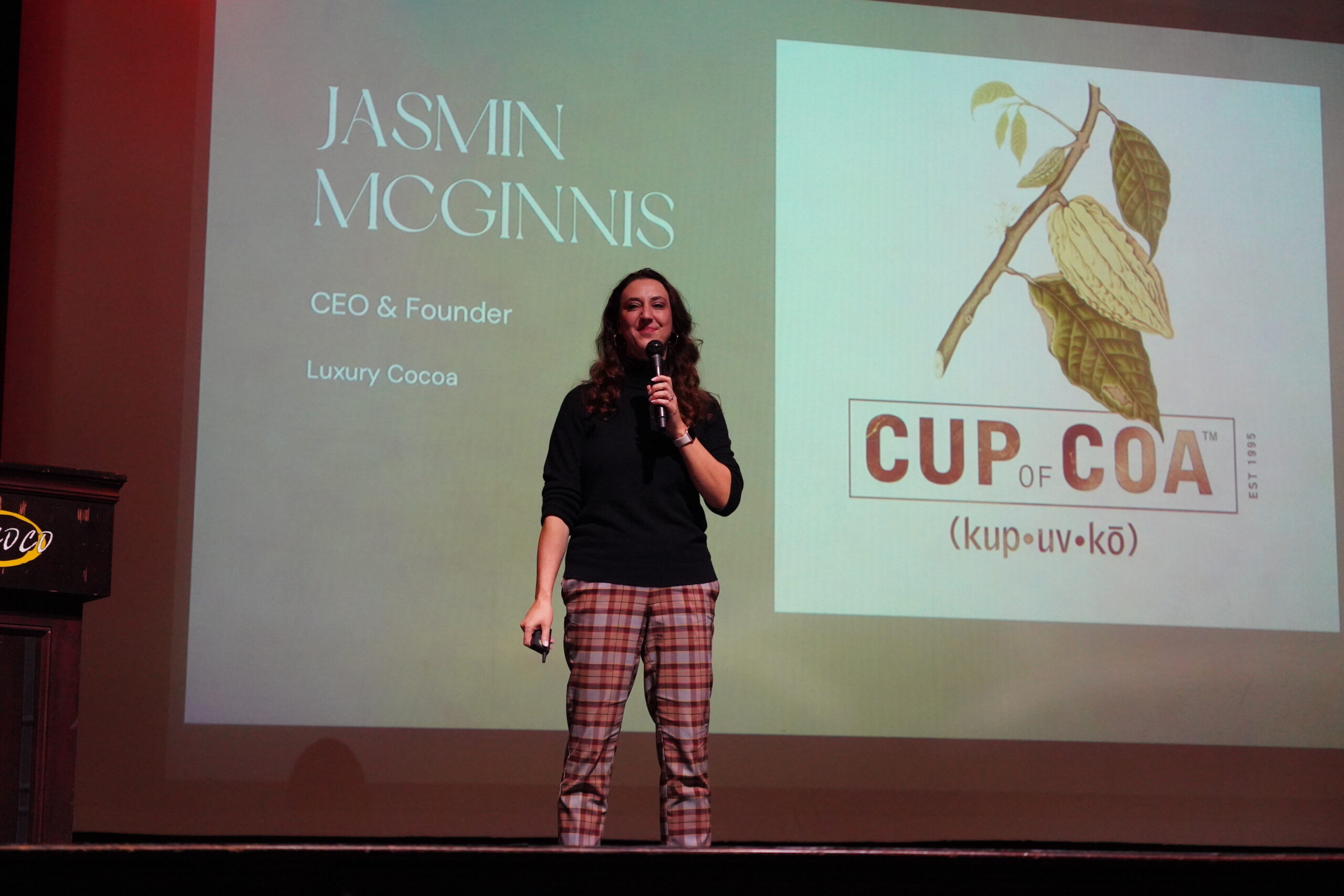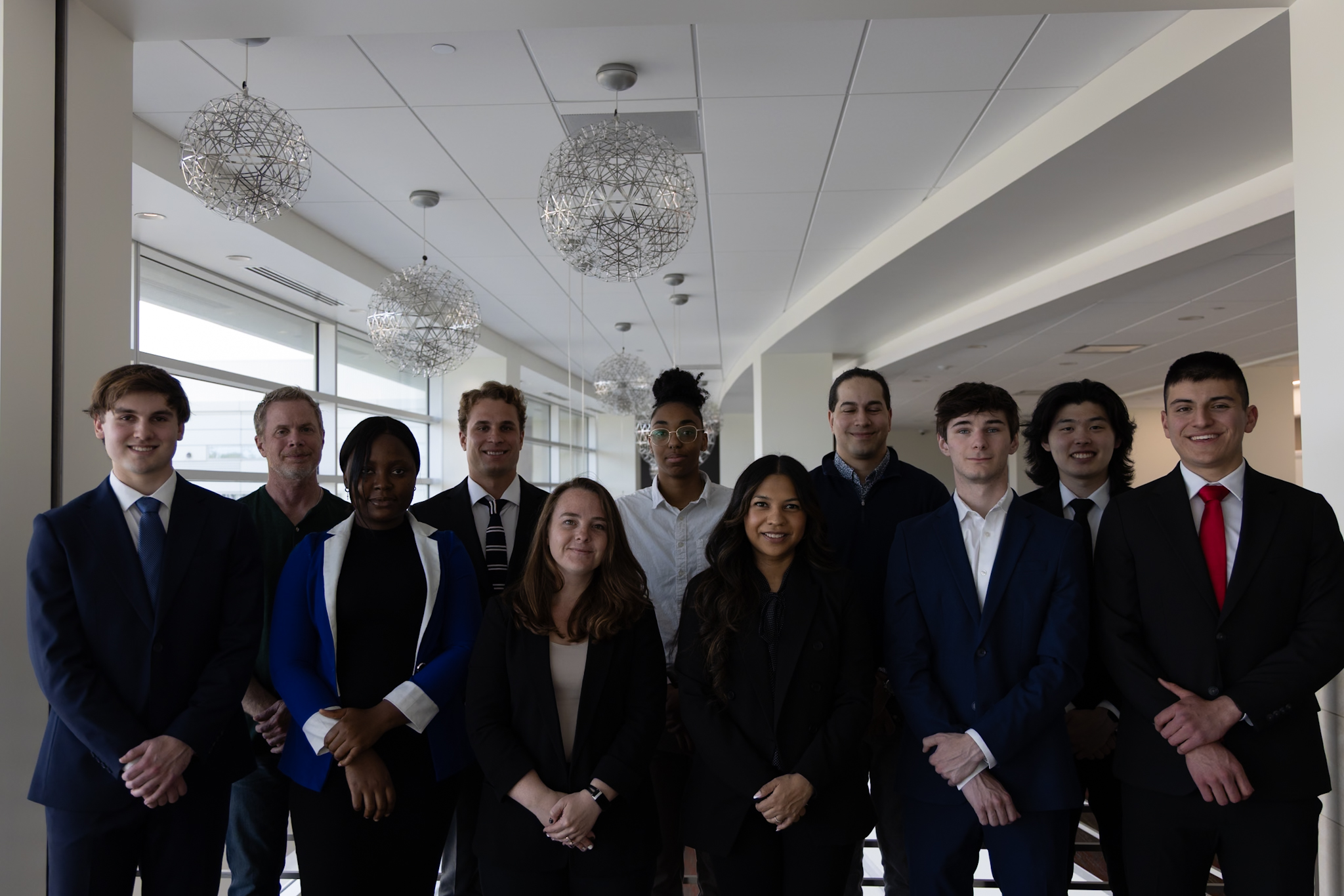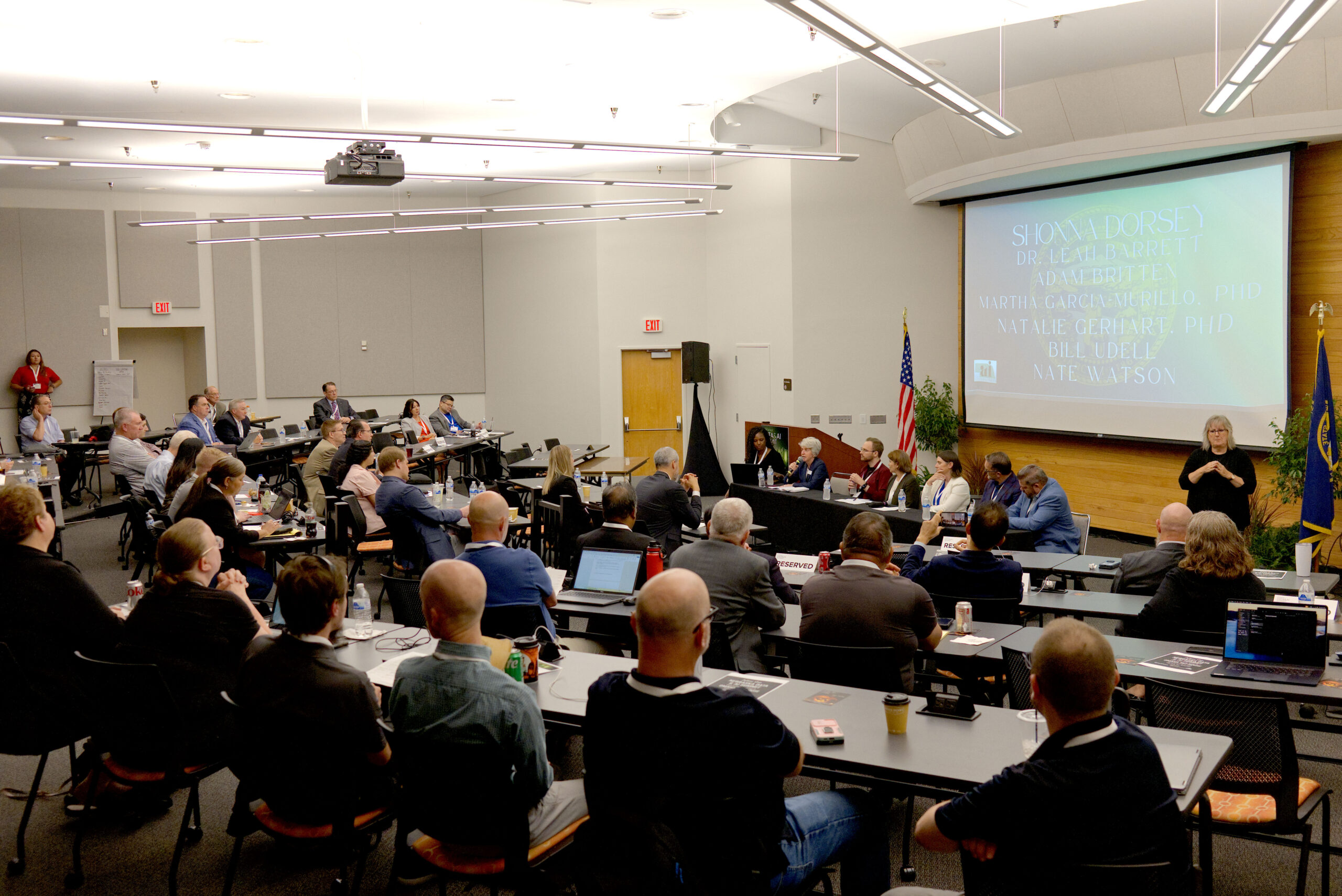For many small business owners in Nebraska, the biggest barrier to growth isn’t talent or opportunity — it’s capital.
Wayne Brown, president and CEO of the Urban League of Nebraska, said he hears it often from entrepreneurs across the state. “If I was to walk down the street and knock on the door of a small business owner and I said, ‘What’s your main stressor?’ They would say: access to capital.”
This summer, the Urban League’s Nebraska Opportunity Exchange (NOE) launched a $500,000 microloan fund to tackle that barrier head-on. Through a partnership with Invest Nebraska and the Nebraska Enterprise Fund (NEF), the program pairs financing with training, mentorship and long-term support to prepare businesses for growth and sustainability.
NOE is led by April Hibbler, executive program lead at the Urban League of Nebraska. Hibbler was a driving force behind the creation of the program and subsequent partnerships.
Building an ecosystem around capital access
The NOE was founded in 2022 as a contracting and business development initiative of the Urban League. Its mission is to help small businesses — particularly those led by people of color and other underrepresented groups — win contracts, access funding and scale.
Brown said the idea grew out of conversations with federal Small Business Administration staff and corporate procurement officers. The Urban League realized that while Nebraska has a strong support system for startups, many established businesses weren’t ready to compete for larger contracts or financing.
“We brought them all together for the first Nebraska Opportunity Exchange Conference,” Brown said. “When we did the survey (after), we realized that the businesses that were there, the procurement officers that were there, were saying these businesses aren’t ready. They’re not ready to do business yet.”
Since then, the Urban League has added training and capacity-building programs. Over the last two years, 85% of businesses that worked with NOE have reported improved contract readiness, and more than 60 have become certified to bid for contracts. The new microloan fund builds on that progress, moving companies from preparation to execution.
A partnership designed to fill the gaps
The initiative marks the first formal collaboration among the Urban League, Invest Nebraska and the Nebraska Enterprise Fund — three organizations that leaders said bring complementary strengths to the table.
For NEF, the effort builds on a decades-long track record of lending to underserved entrepreneurs. The organization manages a $35 million loan fund and has focused intentionally on areas such as East Omaha and rural Nebraska, where small and micro businesses often struggle to secure traditional bank loans.
Jim Reiff, executive director at NEF, said the impact of these loans can be profound, even when the amounts seem modest. “Some of the biggest Black-owned businesses have also received a loan from NEF. That loan went to making payroll, to making sure that business had the capital they needed at a time when the business was still starting.”
Reiff emphasized that the collaborative model reduces duplication of services while expanding options for entrepreneurs. Instead of being sent from one program to another, small business owners can access capital and training through a single entry point. If NEF cannot fund a business directly, Invest Nebraska or another partner may be able to step in.
“I just think this is an example of where we need to go,” Reiff said. “We need to find ways to better collaborate, to use each other’s resources in a productive, collective way.”
Invest Nebraska’s role is somewhat different. The organization is best known for investing venture capital in high-growth technology startups. But Dan Hoffman, CEO at Invest Nebraska, said it also operates a small microloan fund, and the Urban League partnership provides a way to extend that experience to Main Street businesses.
“There’s probably a lack of microenterprise assistance and lending in Nebraska,” Hoffman said. “So we just need to create more businesses… Main Street type of businesses are just as important as when it comes to job creation.”
Hoffman added that the three groups together form what he called a “powerful trifecta,” pairing the Urban League’s on-the-ground trust in the community with NEF’s long history of microlending and Invest Nebraska’s experience in equity investment and mentoring.
“You have consistency with the three organizations, but also experiences that together make a very powerful trifecta when it comes to assistance for small businesses,” Hoffman said.
Brown, of the Urban League, said the organization’s role is to serve as a connector and convener, bringing entrepreneurs into the fold who may have been turned away by banks or unfamiliar with contract opportunities. By anchoring the partnership within the Urban League’s broader programming, he said, the goal is to ensure businesses are not only trained but also capital-ready.
The collaboration is designed to give entrepreneurs confidence and continuity. Instead of facing “no” at the bank or being bounced between organizations, small business owners can find themselves supported by a coalition of lenders and mentors.
“This table is a puzzle,” Reiff said. “Each of us has a couple pieces. What we need to do is get all the pieces in the right places.”
Microloan requirements
To qualify for the NOE microloan, businesses must meet three key requirements: operate for more than two years, demonstrate profitability and complete the NOE’s capacity-building courses.
Businesses that meet these criteria can apply for up to $50,000 in financing. Loans are intended to cover expenses associated with fulfilling contracts — such as purchasing equipment, making payroll, scaling operations, or handling compliance, legal or bonding costs.
Each approved applicant also receives a two-hour tax and financial strategy consultation from Hayes & Associates, a CPA partner. Brown said this component is designed to strengthen long-term planning and help entrepreneurs avoid financial missteps as they grow.
Applications are reviewed by an investment committee, which includes representatives from the partner organizations. While the Urban League is managing the fund, Brown emphasized that the committee structure adds rigor to the process and ensures that each business is evaluated fairly.
Applications have been processed, and the first recipients are expected to be announced in the Fall.
The program’s initial loan pool totals $450,000, with individual loans capped at $50,000. However, recipients may also be connected to additional sources of capital through the Nebraska Enterprise Fund, Invest Nebraska and Lending Link, a nonprofit financial coaching and lending organization. Together, these partners can help assemble larger financing packages, allowing businesses to access six-figure sums once they’ve proven themselves with the microloan.
Brown gave the example of a business that qualifies for the $50,000 NOE microloan and, because it has completed the capacity-building program, also could attract an additional $100,000 from the Nebraska Enterprise Fund or $20,000 from Lending Link. That layered approach, he said, helps create a financing package that would otherwise be out of reach for many entrepreneurs.
Brown said the program is designed to help entrepreneurs break through what he called the “glass ceiling” of personal financing. Many of the businesses the Urban League works with rely heavily on family savings, credit cards or personal loans to operate.
Long-term vision
For Reiff at NEF, success ultimately comes down to sustainability. “Honestly, success is a business paying off their loan and making a profit,” he said. “If that owner is earning more than $65,000 a year in profit, above the state’s median household income, that’s a win.”
Hoffman said the program should be measured over years rather than months. “The big indicator is, hey, are we shaking the trees to find out who’s out there, who wants to go through this process, and then who’s able to get that financing,” he said. “It’s not a short-term process. This will be three to five years of us continuing to do this.”
Brown framed the initiative as part of a much larger economic and social goal: “Can you imagine a Nebraska without a racial wealth gap?” He added that the microloan fund is one step toward that vision by ensuring small businesses, especially those historically underrepresented, have a fair chance at opportunity.
To learn more about NOE, you can visit their website here.





Leave a Reply